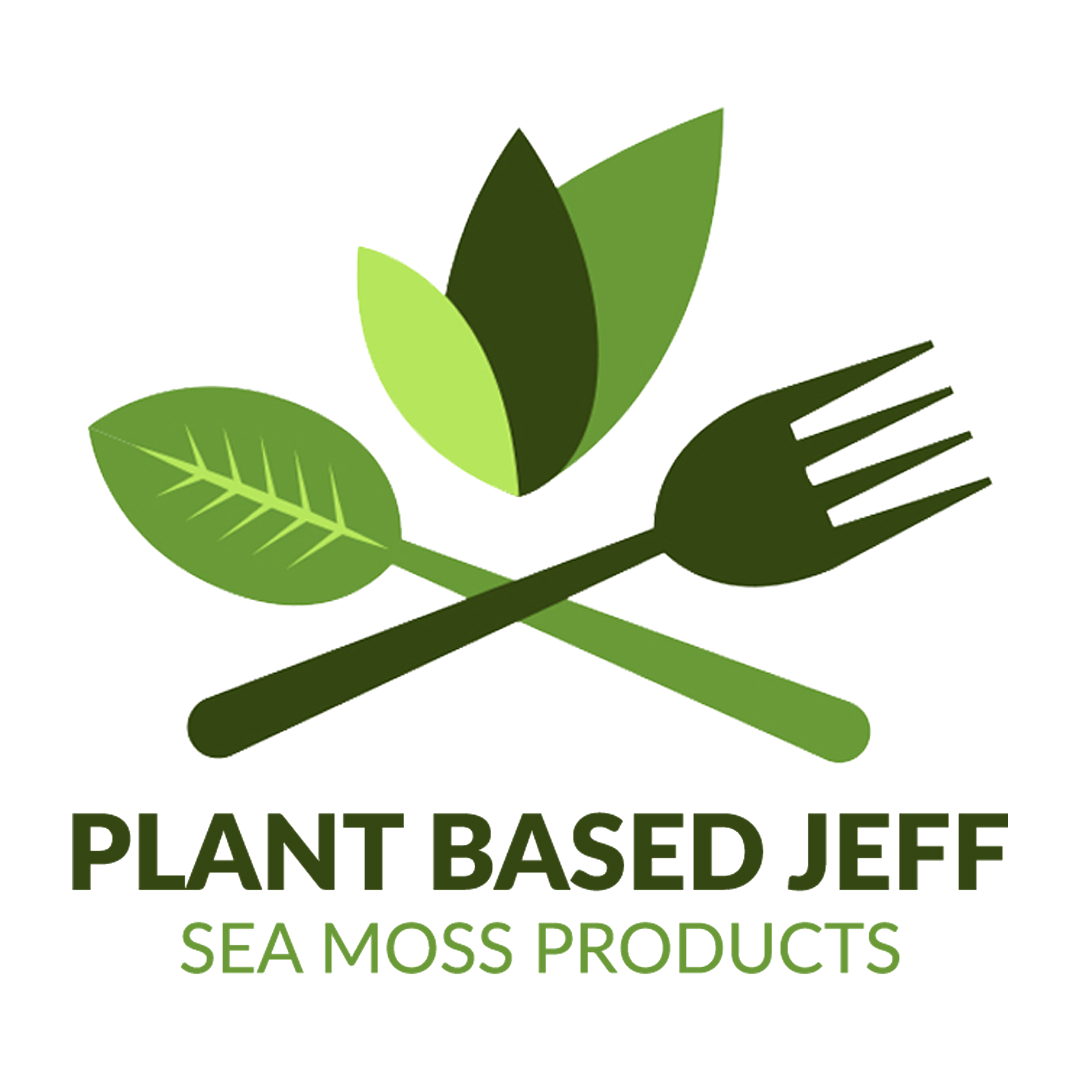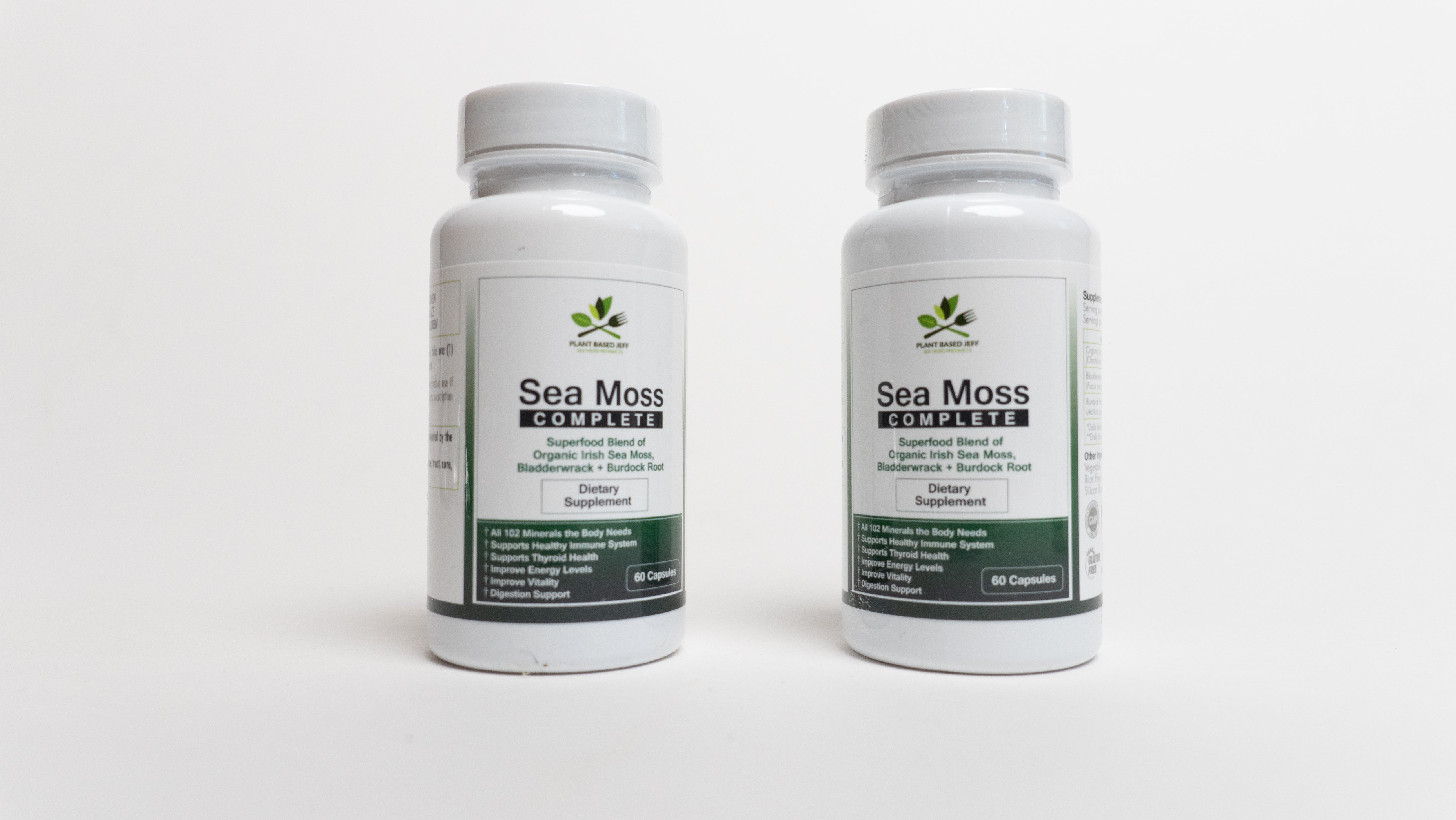
Minerals & Vitamins: The Good Stuff from Sea Moss (Part 2)
In the first part of this series, we introduced sea moss as one of the greatest sources of vitamins and minerals today. As it rises in popularity, we find that it is critical to find factual and valuable information surrounding it. This way, we can share the knowledge and offer useful insights which may convince others (like yourself) to see the beauty of sea moss.
Now, we will go deeper and discover more about the “good stuff” sea moss can offer. Read on to learn more.
Sea Moss and Folic Acid
Folic acid aids in the production of red blood cells. It must be consumed by pregnant women in order to avoid birth defects. Folate is derived from natural sources, whereas folic acid is synthesized in a laboratory.
Sea moss contains a significant concentration of folic acid. There are 18.2ug in two teaspoons of marine moss, for a total of 182ug per 100g. The ocean's kelp contains about 5% of the folic acid that is needed on a daily basis.
Folates can also be found in legumes, veggies with leafy leaves, and supplemented cereals.
The Chemical Composition of Algae
A species of red algae known as sea moss (Chondrus crispus) thrives along the coastlines of North America, Europe, and Asia. It adds iodine to stews while also thickening them.
Sea moss contains Vitamin A (good for the skin, eyesight, and the immune system), Thiamin (for the conversion of food into useful energy), Riboflavin (aids the body's digestion), Niacin (promotes the development of new cells and aids in nutrient absorption), Vitamin B6 (necessary for the creation of red blood cells), Folate (a necessary component in the formation of red blood cells), Vitamin C (enhance iron absorption as well as immune function), Vitamin D )aids in the absorption of calcium and phosphate), Vitamin E (protects cells), and Vitamin K (required for proper blood coagulation). All these substances may make sea moss the ultimate superfood!
Kelp is high in ascorbic acid and vitamin C, making it an exceptional source of both. Our bodies convert this acid into vitamin C, a nutrient found in sea moss. Every 100 grams of Irish marine moss contains 3 milligrams of vitamin C, also known as ascorbic acid, equivalent to 4% of the daily value.
Furthermore, sea moss contains sodium, potassium, and calcium in its entire composition. Consumption of sea moss is a healthy way to enhance one's health!
Sea Moss: A Prime Source for Vitamins and Minerals
Sea moss is a nutrient-dense food supply. It carries some of the most essential vitamins and minerals the body needs, including vitamin A and magnesium.
Sea moss contains 92 distinct elements as well as 12 different micronutrients. Kelp is composed of three elements: zinc, magnesium, and iron. After all, kelp, which is high in iodine, is good for thyroid health.
Sea moss is high in nutrients and has numerous health advantages. Its nutritional worth remains unchanged whether consumed alone or as part of a meal.
Conclusion
Today, it has been discovered that there is an abundance of sea moss in the Atlantic and Pacific oceans. Because of the presence of vitamins, minerals, and antioxidants in its composition, it is a nourishing choice. The micronutrients found in marine moss can be helpful to one's diet and health, and it is simple to add to beverages or supplements.
Do you want to know where to buy real sea moss? Plant Based Jeff is here to provide you with quality all-natural sea moss products. Shop our products today!


Leave a comment
This site is protected by hCaptcha and the hCaptcha Privacy Policy and Terms of Service apply.